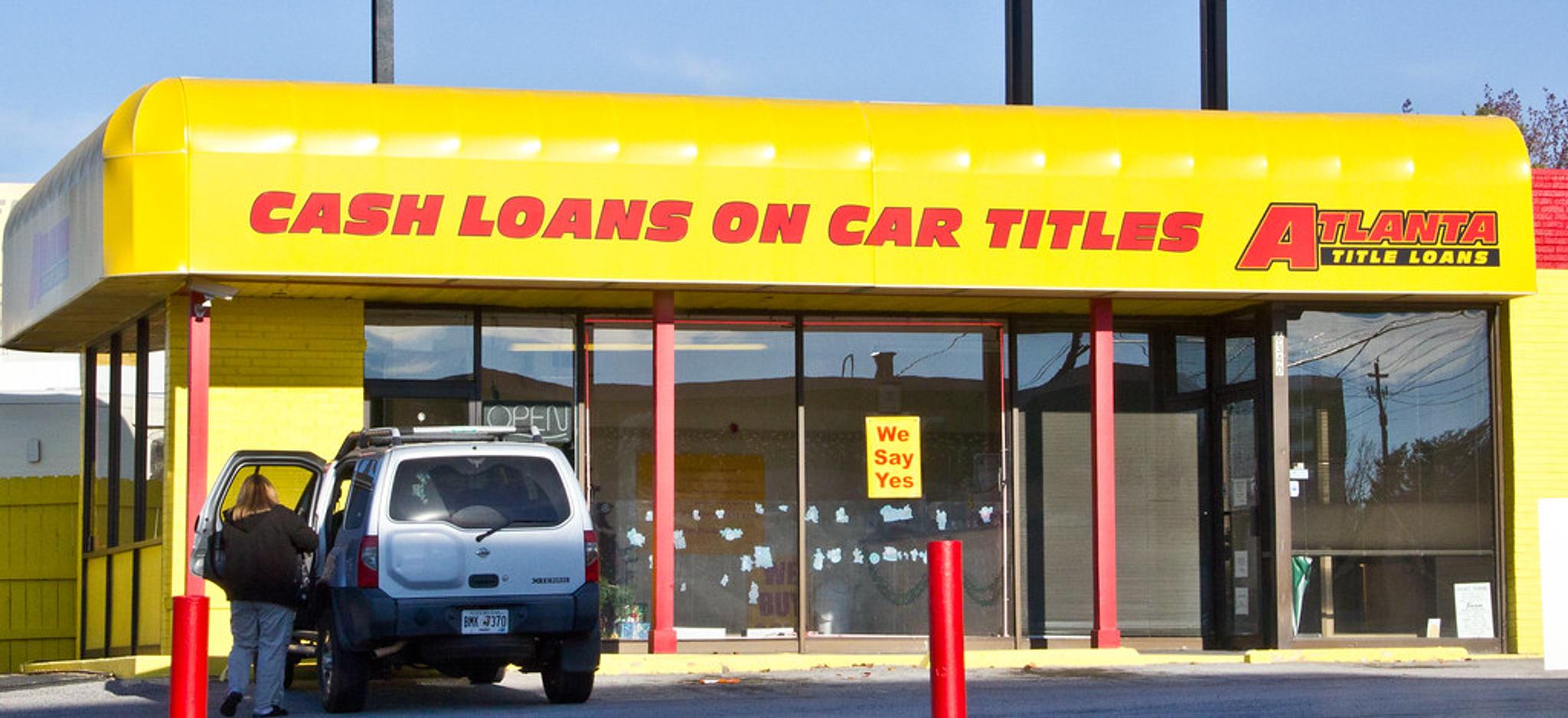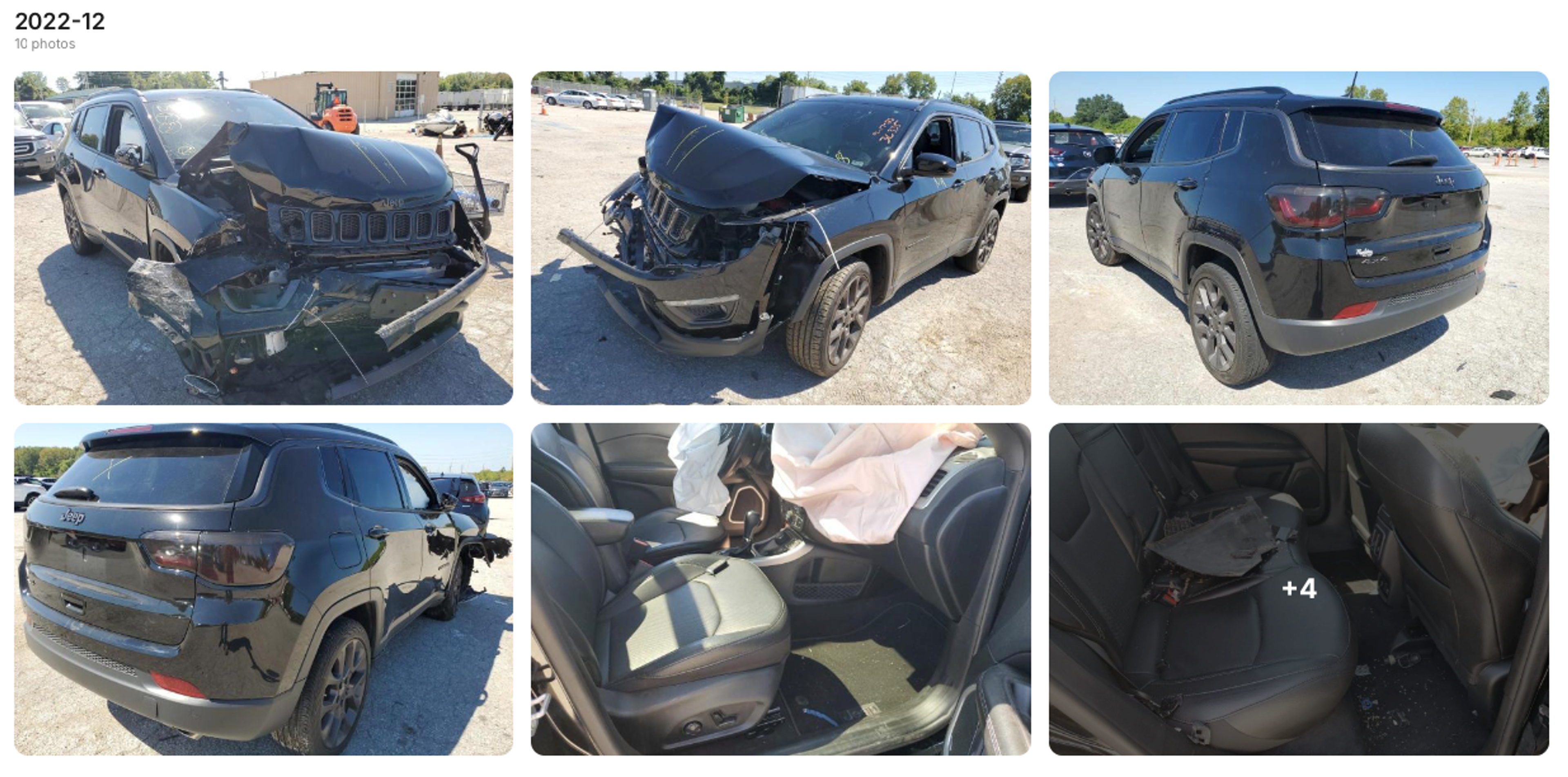Table of Contents
Car title loans: everything you should know
In the United States, car title loans are often featured in bold and distracting online ads and roadside billboards. Title loan companies offer quick and easy money to anyone who owns a car, promising you cash within minutes. While this may seem like a good deal at first, many people regret taking title loans, so there are a few things to know if you consider getting one.
Understanding car title loans
Car title loans (also known as registration loans) may save you from a financial pinch, but many borrowers focus on the money without digging into risks and other essential details.
A car title loan is a type of loan where a borrower uses their vehicle as collateral. A lender usually keeps the title until the loan is paid off but allows the borrower to use the vehicle. If a borrower defaults on the loan, the lender can legally take the vehicle and sell it to cover the debt. There are cases where title loan companies take the customers’ vehicles right from their driveways without asking – there’s nothing a borrower can do in these situations.

While title loan companies can provide cash in minutes, the interest rates are 40-50 times higher than those for mortgages, therefore, title loans are very risky. Furthermore, you have to be extra careful when signing for a car title loan because shady businesses often offer these services and are mostly interested in repossessing your car.

Need help buying a used car?
Enter a VIN code to learn more about any vehicle!
Requirements for car title loans
People usually choose title loans when they need money quickly but can’t get any other loan because of a bad credit score. Title loan companies don’t focus on their customer’s credit scores because they receive cars as collateral, but there are a few requirements to apply even for a title loan.
Eligibility criteria
While terms and conditions for title loans differ by state and company, the general requirements are:
- You must be at least 18 years old (19 in some states)
- You must have a car with a clear title in your name
- You must have some source of income
Some companies approve about 90% of applications, meaning almost anyone can get a title loan. The most important aspect for a title company is their customer’s vehicle’s value because they need to be sure that your car will cover most (if not all) of your debt if you default on a loan. That’s why the maximum loan amount depends mainly on your car’s value.
Required documents
To prove the ownership of your car and correctly apply for a title loan, you’ll need to bring a few documents, such as:
- Clear vehicle title
- Your ID or driver’s license
- Proof of insurance
- Proof of income
- Proof of residence
The required documents vary by company, so first familiarize yourself with the terms and conditions. Avoid title loan companies that only require your ID and car title. Less regulations and requirements could mean they’re focusing on taking your car rather than helping you.
Vehicle evaluation
Title loan companies have an appraiser who evaluates your vehicle and decides how much money they can lend you. In most cases, the loan size is more or less equivalent to the vehicle's value, so you can also calculate how big of a loan you may get.

You can do that by checking a few marketplaces to compare the prices of similar cars. However, your car's mileage, condition, and even color affect its value, so you can check whether your car was in an accident, has fake mileage, or other significant historical records by getting a vehicle history report. Check out carVertical’s sample report to see what a full history report looks like.
Risks and alternatives to consider
Title loan companies open their doors for most people, even when banks and other financial institutions turn their backs. But that doesn’t mean they trust you – they just have a plan if you default on a loan. Ensure you’ve explored other options and know the risks of taking a car title loan.
Risks and disadvantages of car title loans
A quick cash infusion may help you make ends meet, but even though car title loans can offer that, the downsides and risks associated with these loans may be much worse than you think. Here are a few of the most important ones:
- You can lose your vehicle. Title loan companies can tow your vehicle off your driveway if you delay payments.
- Hidden fees. Processing, documentation, late fees, title charges, and other expenses may add up to hundreds of dollars.
- Short terms. Usually, title loan repayment periods vary between 15 and 30 days.
- Huge interest rates. Car title companies charge around 25% per month in interest rates, translating to 300% in APR (Annual Percentage Rate).
- You may still be in debt even after losing your vehicle. Losing your vehicle isn’t the worst-case scenario of taking a title loan – you can owe money even after giving your vehicle away.
You can get yourself into a worse financial situation than before taking a title loan. People often overlook huge interest rates and end up with the same issues as before taking the loan, and without their car. Always thoroughly check the company’s terms and conditions and make sure you’ll be able to catch up with regular payments. If you find yourself struggling, it's crucial to know how to get out of the title loan to avoid further financial hardship.
Alternatives to car title loans
The need for quick money often leads to rash decisions, especially when you see title loan ads everywhere. There are more ways to get quick cash than you may think, such as:
- Refinancing. If you struggle to pay off your car loan, your bank or other financial institutions may offer better interest rates so you can refinance the current loan.
- Trading in your vehicle. A car is often the second most expensive purchase of our lives. You can get extra cash by trading it in and picking something cheaper.
- Borrowing money from a friend or relative. Borrowing money from your acquaintance is a relatively safe choice. You can even offer a small interest rate for this favor.
- Increasing a credit card limit. This is a riskier way of getting some extra cash because it may hurt your credit score if you aren’t able to make monthly payments on time.
- Negotiating. Whether it’s an expensive purchase or a loan, you can negotiate a more favorable price or conditions.
If you’re going to trade in your vehicle or get a title loan, car dealerships and title loan companies often check the car’s history to evaluate the vehicle. You can do that beforehand and learn about devaluing facts, such as car accidents, mileage rollbacks, or title brands. All you need is your car’s VIN.

Check your VIN
Avoid costly problems by checking a vehicle's history. Get a report instantly!
Legal regulations and consumer protection
Only a few states allow title loans without any restrictions, while in most states, they’re either strictly regulated or banned. These regulations protect people from extreme terms and conditions title loan companies offer. For example, in Alabama, Georgia, Mississippi, and a few other states, the maximum monthly interest rate is limited to 25%, while other states set the limit at 30% or 50%.
FAQ
Where can I get a title loan?
Title loans are offered by title loan companies. You can find many such companies online.
What happens if I default on a car title loan?
You can lose your vehicle. Usually, title loan companies must warn you about their intentions, but they can legally take the vehicle from you at any time. Moreover, you may still owe them after they take the vehicle due to interest.
Can I still use my car while it's used as collateral for a title loan?
Yes. Usually, title loan companies keep the title until you pay off the loan, but you can use the vehicle.
How much can I borrow with a car title loan?
Depending on the state, the maximum loan amount is either unlimited or varies between $350 and $50,000.
Are there any fees associated with getting a car title loan?
Yes. There are often processing, documentation, late, title, and other fees.